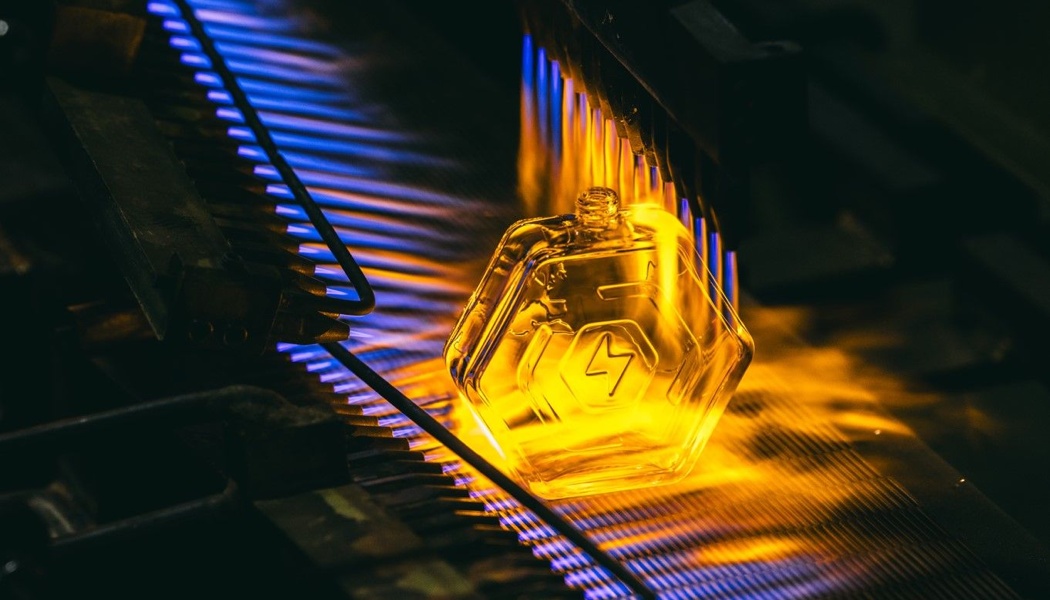In addition to being powered by low-carbon electricity, the new furnace at the Pochet du Courval factory “consumes half as much energy (…) while offering a higher capacity,” 66 tons per day compared to 50 for a gas-fired furnace, according to André Frézel, the group’s technical director.
While industries across France and Europe face challenges in swiftly transitioning from fossil-fueled furnaces and boilers to electric alternatives, the family-owned group—specializing in packaging for the luxury goods sector and employing 1,650 people in its glass division—remains firmly committed to its decarbonization goals, even if it means, as they put it, “going against” the prevailing economic climate.
The group manufactures and decorates containers for some of the largest French and international luxury brands. Some have become iconic, such as the Guerlain bee bottle, designed in 1853 for Empress Eugénie. Nearly 200 years later, Pochet aims to meet the demands of its customers for improved climate performance.
The glass industry, which is highly dependent on gas, accounts for 3% of French industrial greenhouse gas emissions, emitting an average of 500 kg of CO2 per ton of glass produced, according to the French Federation of Glass Industries. To reduce the energy required for melting, Pochet already uses 15% recycled glass. The group aims to halve all its greenhouse gas emissions by 2033 compared to 2014.
Electricity is the key to competitiveness
This small revolution required 7 months of work and 12,000 hours of training to master the new tool. “Gas heats up quickly and intensely, but cools down quickly,” while electricity “heats intensely, slowly, and cools down slowly,” explains Benoît Marszalek, Operations Director at Pochet du Courval.
With an investment of EUR 40 million, including EUR 6 million in public subsidies, this choice was far from obvious given the rise in energy prices “since the war in Ukraine,” he acknowledges.
A power purchase agreement with a solar power plant guarantees stable prices, but it’s not enough to cover all of its carbon-free electricity needs. Hence the call from the group’s CEO, Xavier Gagey: “We need affordable electricity costs.“
In short, if the group is to build a second electric furnace, EDF—the historic and primary electricity supplier in France—will need to step up, and the government must send clear signals to support industrial players committed to decarbonization. “Our competitors in Asia and the United States pay two to four times less for energy than we do in France—even though we have a nuclear power plant just 40 kilometers away,” Gagey points out.
For more than a decade, EDF’s most electricity-hungry customers, from aluminum to chemicals, have been paying rock-bottom prices for their electricity in France, but this scheme will end in 2026. Negotiations between EDF and these manufacturers to replace it are stumbling over the price for long-term contracts, which these “electro-intensive” companies consider excessive to remain competitive.
Xavier Gagey fears that smaller companies like Pochet will ultimately be less well off than steel or cement giants. “We must be taken into account, otherwise decarbonization is in jeopardy,” he warns.

